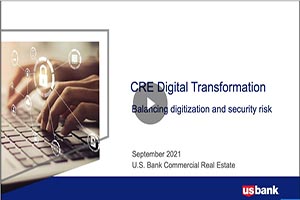For those in the manufacturing industry, breakdowns in the supply chain have become increasingly more problematic. Here are a few ways to strengthen your relationship with suppliers and get your materials in on time.
Supply chain issues have been a plague on every industry in recent years, and if you’re a manufacturer, these setbacks can severely impact your business. How can you produce quality material or products when you don't have consistent access to the necessary resources?
To optimize your supply chain, you need to look at every facet of your manufacturing business to predict potential problems, putting you a step ahead. You will be better equipped to meet customer demand by building resiliency into your supply chain. Here are six adjustments you can make to improve your resourcing and operations:
1. Use multiple suppliers in your supply chain
Relying on a single source for crucial products and materials can be risky. While building relationships with a supplier is good for business, it’s important to have backup plans in place before you run into a problem. If your regular source of materials can’t deliver what you need, that backup plan will give you an immediate alternative. While using multiple suppliers does create a more complex supply chain and additional paperwork, it reduces the risk of running out of critical items.
2. Find supply locally when possible
Some of the issues with the supply chain are a result of problems in the import process. You’ve likely heard about the barges stuck in ports, delaying the import of international products and goods. Instead, investigate locally sourced materials, which can offer a shorter delivery time. Sourcing from U.S. companies also saves time by removing the lengthy customs process.
3. Vet your suppliers thoroughly
Before trusting a supplier with crucial materials, do your due diligence. Check their reputation by asking for references. You can also investigate their stability by doing a quick internet search, looking at county court records, or checking with the Better Business Bureau. You want to deal with suppliers that have demonstrated a history of reliability, quality and transparency. During this time of supply chain disruption, reviewing your current suppliers can be a good idea to ensure their businesses remain on solid footing.
4. Buy in bulk to optimize your supply chain
A "just in time" supply chain process may have helped you save money by reducing inventory, but in today’s marketplace, having safety stock may be the wiser choice. Not only are you assured of having the necessary items you need, but you may also be able to avoid paying for air deliveries if an item is backlogged. Purchasing extra inventory will require capital. It can help to put financing options in place, such as using a business credit card that gives you cash back on large purchases.
5. Prioritize end-to-end (E2E) visibility
Inventory management is a critical task during supply chain breakdowns. If you haven’t already adopted automated inventory management systems that sync product levels and sales, consider investing in new technology that provides real-time numbers. The centralized system can track your manufacturing assembly line production and provide insights across departments. You can set thresholds that automatically reorder items to avoid out-of-stock situations. And you can track how long your suppliers take to deliver your items to improve the timing of your ordering process. Technology can improve your supply chain by making your ordering process more efficient and resilient.
6. Be transparent with your customers about wait times
Thanks to online retailers like Amazon, today’s customer is accustomed to near-immediate delivery of the items they order. That said, most consumers have recently experienced supply chain issues on hard-to-find necessities, and they’re likely more patient and understanding with the situation. It still helps to be hyper-vigilant about communicating wait times to customers. Whether you sell direct to consumers or wholesale to other businesses, providing estimated delivery times before an order is placed will be vital to maintaining good relationships with your customers. If you run into a problem after an order is placed, communicating the issue will give your customer a chance to find an alternative.
Logistics issues continue to be resolved, and supply chain problems are projected to lessen over time. For the present, having a manufacturing supply chain optimization plan in place will reduce the headaches that disruption can cause.
Learn more about how U.S. Bank supports business owners with its suite of business products.




































































































